How do you handle grief during Thanksgiving? Don't fight it.
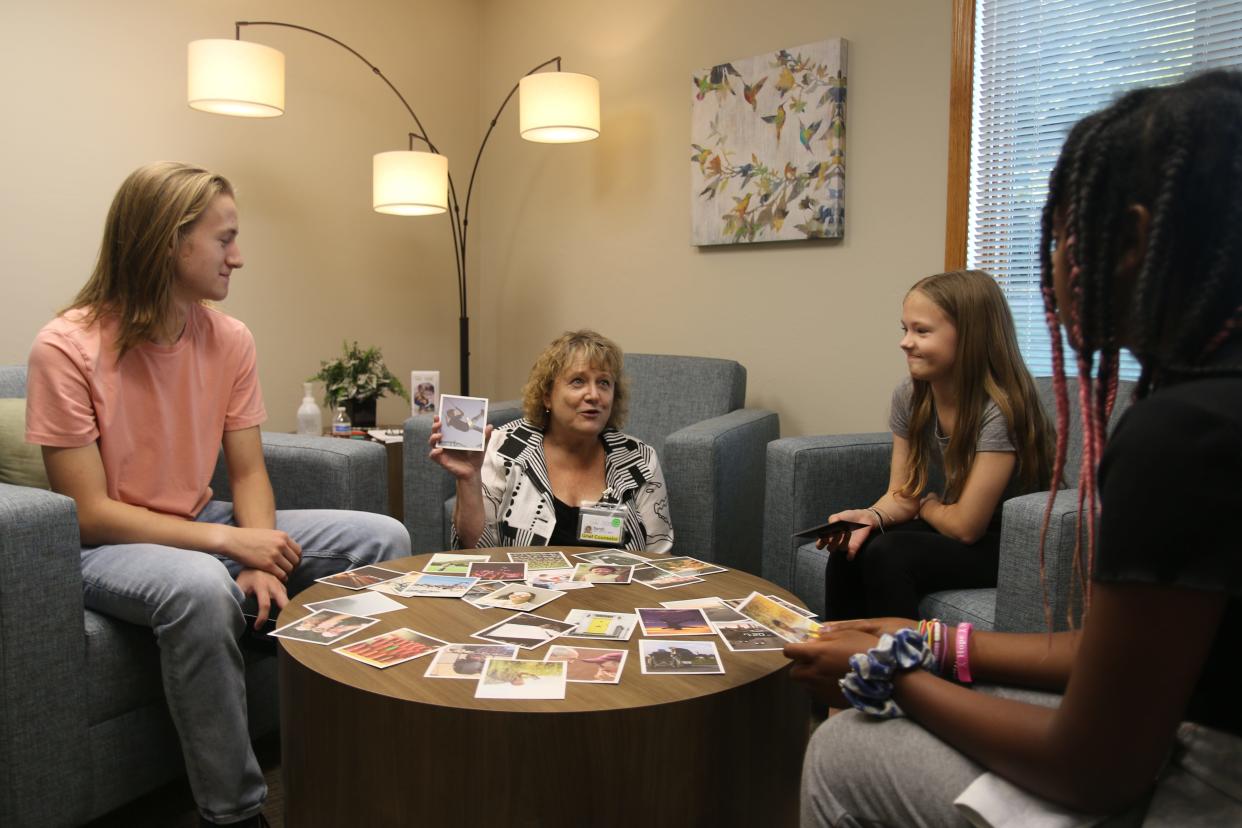
Thanksgiving reminds us to be grateful for family, hearth and home, but it also can open the floodgates to grief.
Whether loss permeates from the empty chair of the dinner table or a food dish that nobody else gets quite right, Thanksgiving can bring back waves of grief, regardless of how far along we've come in processing that acute pain.
Grief hits especially hard during big holidays like Thanksgiving, says Lisa Tutskey, a licensed marriage and family therapist at Prevea Health, partly because it cements into place the reality that someone is gone and partly because, despite our best efforts, grief "is never ending."
"Most of the time, people think 'I just shouldn't be sad anymore.' Well, no, you're never going to not be sad, you lost somebody who you love," Tutskey said. "Grief is a process toward acceptance, with the understanding that sadness is forever — but that sadness isn't always going to consume every moment of every day, like it does in the beginning. It slowly eases."
Frank and open conversations about death ahead of and during the holidays is not only spiritually cathartic, it's also actually good to express those feelings with a collective, especially those who can receive and share in mourning and remembrance. Those conversations aren't limited to adults, either. The absence of a loved one can and should be explained to children, because children can especially intuit shifts in dynamics and moods, Tutskey said.
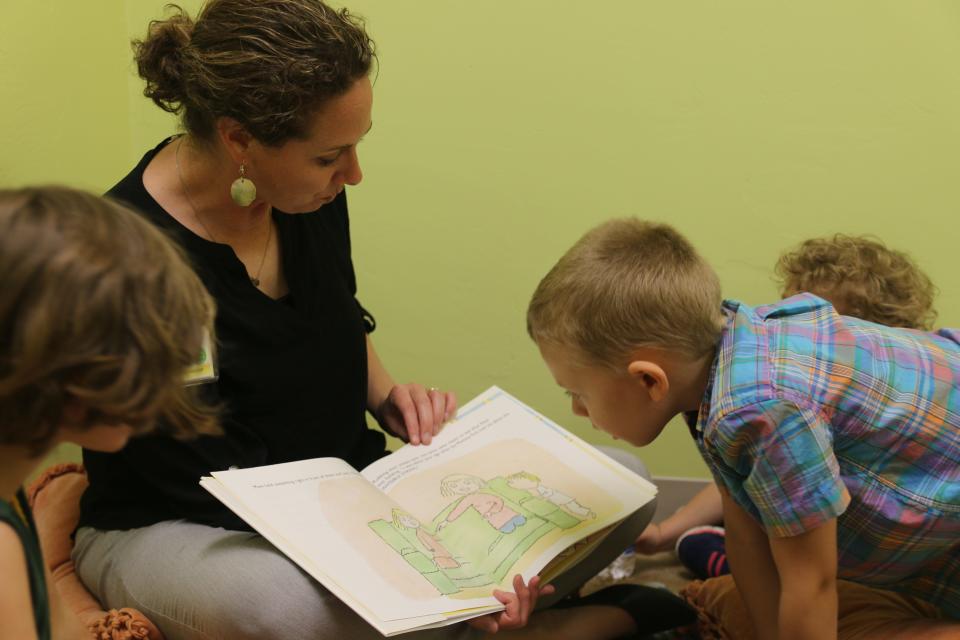
At this year's Thanksgiving, more families than usual could be faced with empty chairs staring back at them. That's because 2021 marked the highest rates of death in the United States since 2003, according to the Centers for Disease Control and Prevention, with heart disease, all cancers and COVID-19 named as the top-leading causes of death. And, although a majority of children didn't fall fatally ill with COVID-19, data show that over 140,000 children in the United States lost a parent or grandparent caregiver over a 15-month period to the virus.
Jenny Boeckman, services director at Unity Grief and Education Center in De Pere — which offers free grief counseling across 12 counties in northeast Wisconsin — said her staff has fielded more than 8,000 calls in the last year. The organization opened the Unity Grief and Education Center last November in response to the surge in calls from people asking questions and for additional support in their time of grief.
Grief can make even the biggest Thanksgiving gathering the loneliest
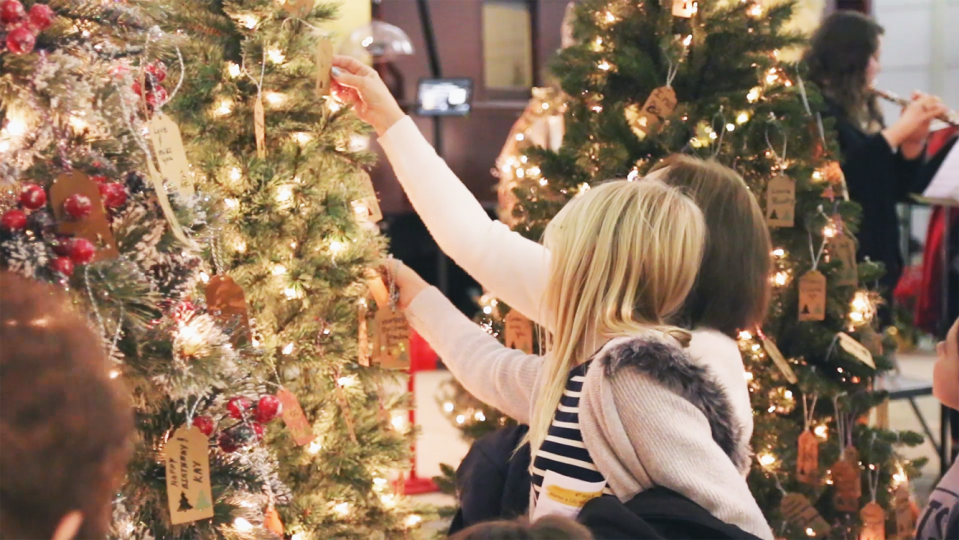
Thanksgiving kicks off the festive jingles that insist we're entering the most wonderful time of the year. But for those who have experienced the death of a loved one, nothing can feel lonelier than looking in on others celebrating holiday cheer.
Boeckman said she starts to hear about holiday dread as early as the summer. They're anticipating what it's going to be like to be part of a gathering where someone's absence is so omnipresent.
"There's something about the holidays — they're just full of traditions, expectations, whether they're within cultures, family systems, or friend systems," Boeckman said. "You're really aware of the absence of that person in those traditions. People always ask 'What are we going to do now?'"
There's no reason to grin and bear it for tradition's sake if it means burying your feelings, Tutskey said. Swallowing big emotions doesn't make them go away; they manifest in other ways because, as Tutskey said, "emotions have to go somewhere." Instead of coping through an honest exploration of the pain, we're conditioned to avoid pain at all costs, even if it means opting for more destructive vices.
This can lead to unhealthy choices, such as substance abuse, overspending and gambling on the behavioral end, and issues such as agitation, trouble sleeping and loss of appetite on the mood and physical disorders end.
"We're taught to believe in the blessings and gratefulness of Thanksgiving. That's what we are conditioned to believe. But the reality is that, for many people, these are really difficult holidays," Tutskey said. "And often it takes that bravery or courage of one person to say, 'This is a really hard holiday' for others who are grieving to chime in."
Changing up the messaging of the holiday can help. If you don't feel you have the capacity to be thankful this year, make the day about something else. Tutskey suggests focusing on the food or other creature comforts that the day brings.
Boeckman suggests creating new traditions, some that perhaps play into someone's memory and others that update the whole affair. Maybe it's around grandma's famous molasses cookies, Boeckman said. Sometimes, family can laugh because Aunt Susie's version of the recipe leaves much to be desired or, conversely, nobody really liked those cookies.
"At the end of the day, people make dishes because they loved us. So, let's take the heart of what mattered in that gesture and let's make it our own," Boeckman said. "Perhaps as a family, you can talk about how do we do it this year? It might look different than how we did it last year, which doesn't mean you always have to do that."
'How did your dad die?'
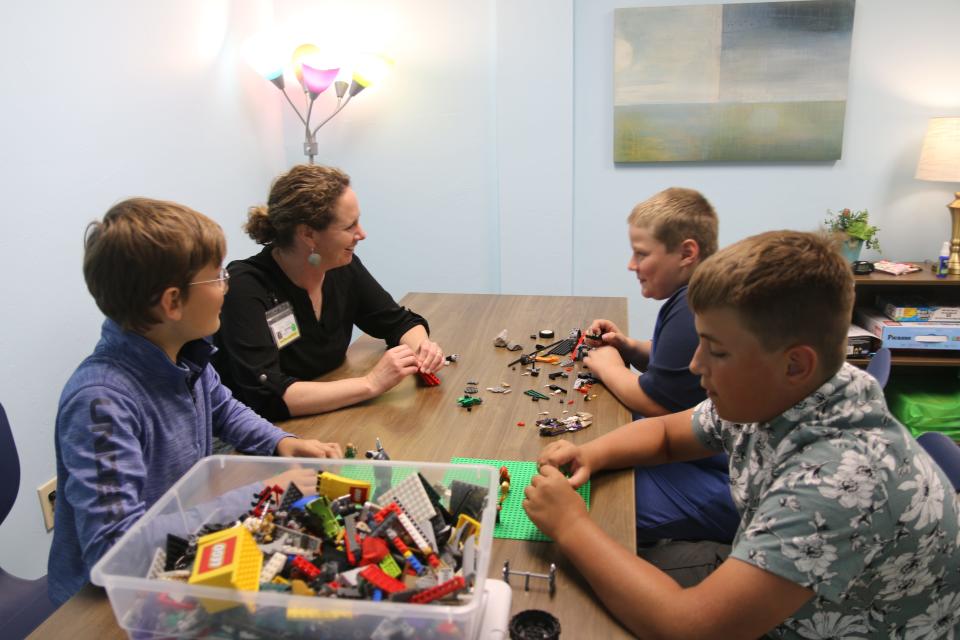
When Boeckman visited Howard-Suamico School District to discuss death and the holidays with students, she recalled one student expressing frustration with how adults communicated the ins and outs of grief.
"One kid in one of our grief groups said, 'I wish people knew how long and hard grief was.' There's this sense that adults aren't grieving, because they're not talking about it, or they're acting like everything's fine, so I (the child) shouldn't bring it up," Boeckman said. "Kids are smart. Kids have relationships with people. And silence speaks."
Children are extremely good at picking up on absence, something amiss in their environments, both Tutskey and Boeckman said. They agreed that being a model for grief, one that allows children to engage in discussions, can not only be a balm in grief, but give them the permission to access their feelings.
"Kids often can feel that something's not right. And by not talking about it, we're actually invalidating how they feel," Tutskey said. "So let's validate it for them, because they can handle those hard things. We don't have to hide those things from them."
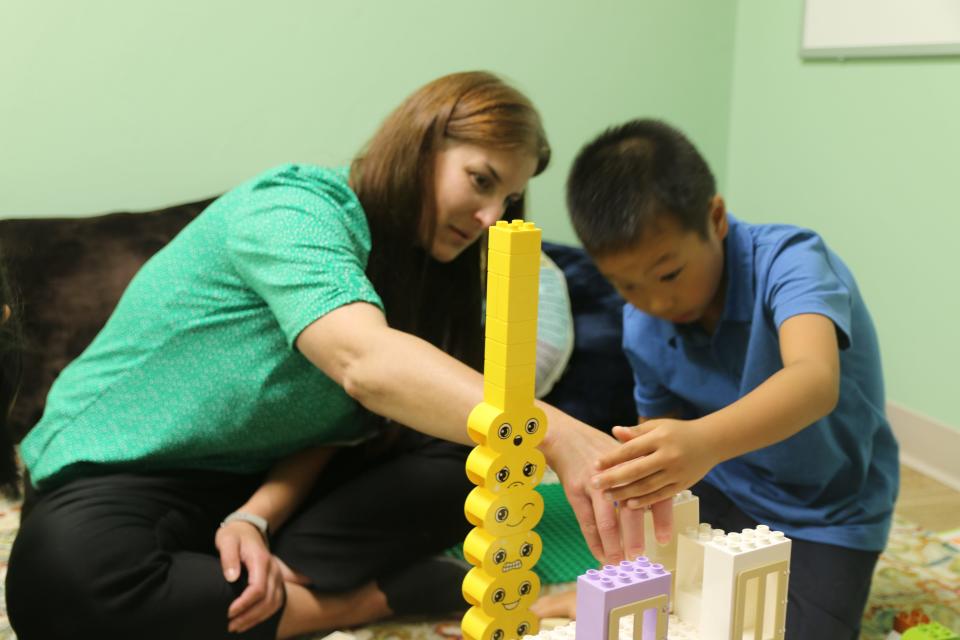
Boeckman said discussions might look like a parent telling a kid, "I was feeling sad about your dad yesterday. Do you ever feel sad about your dad?" Even the more existential questions surrounding death are an opportunity to open up. A question like, "What do you think happens when we die?" can be a time for profound ideas that honor someone's belief while opening a pathway for other explorations and notions of the afterlife.
According to Judi's House, which looks at childhood bereavement estimates, COVID-19 brought a dramatic hike in parental deaths for children under 18. By August 2022, 64,800 children newly experienced the loss of a parent, compared with 2020, when parental deaths affected 17,600 children.
In Wisconsin, one in 14 children and youths will experience the death of a parent or sibling by the time they're 18.
At Unity Grief and Education Center, children have the opportunity to sit in rooms with other children who have experienced loss. It's a moment of freedom, where the child no longer has to be the kid in class who lost their dad. Boeckman has watched children talk openly about death, exchanging questions that range from "How did your dad die?" to "Do you think he's in Heaven?"
Tutskey encourages adults to explain death to very young children in 15 words or fewer, because too many words might be too difficult to process.
"You let kids know, 'If you have questions, you can talk to me. If you feel sad, it's OK to tell me. If you feel angry, it's OK to tell me. Let's give them the information and the time to process, with the understanding that they can come back to talk to you anytime," Tutskey said.
Honor a Life Holiday Gathering and other resources
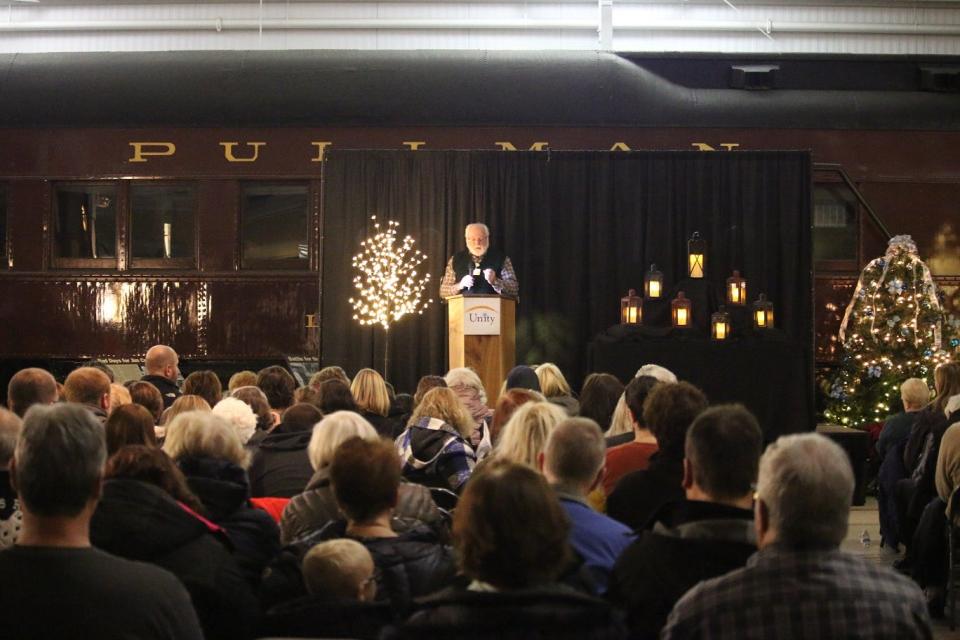
Dec. 7 marks the eighth-annual Honor a Life Holiday Gathering at the National Railroad Museum in Green Bay. It's an opportunity for loved ones to come together during the holiday season and honor the name of their loved ones by lighting candles as a collective. Families can RSVP and order personalized ornaments and memorialized bricks by Nov. 30 by following links on Unity's website.
Other means of coping with grief include the following:
Read Unity's toolkit for handling grief during the holidays.
Review Unity's patient and caregiver resources, which include care tips, support for children and teens experiencing grief, anticipatory grief and more.
Find your local Aging and Disability Resource Center.
Find your local County Veterans Service Officers of Wisconsin.
Learn about family caregiving and grief through the national AARP.
Get more information on hospice and palliative care, including coping with grief, through the National Hospice and Palliative Care Organization.
Natalie Eilbert covers mental health issues for USA TODAY NETWORK-Central Wisconsin. She welcomes story tips and feedback. You can reach her at neilbert@gannett.com or view her Twitter profile at @natalie_eilbert. If you or someone you know is dealing with suicidal thoughts, call the National Suicide Prevention Lifeline at 988 or text "Hopeline" to the National Crisis Text Line at 741-741.
This article originally appeared on Green Bay Press-Gazette: Thanksgiving triggers grief but talking helps, Wisconsin counselors say

